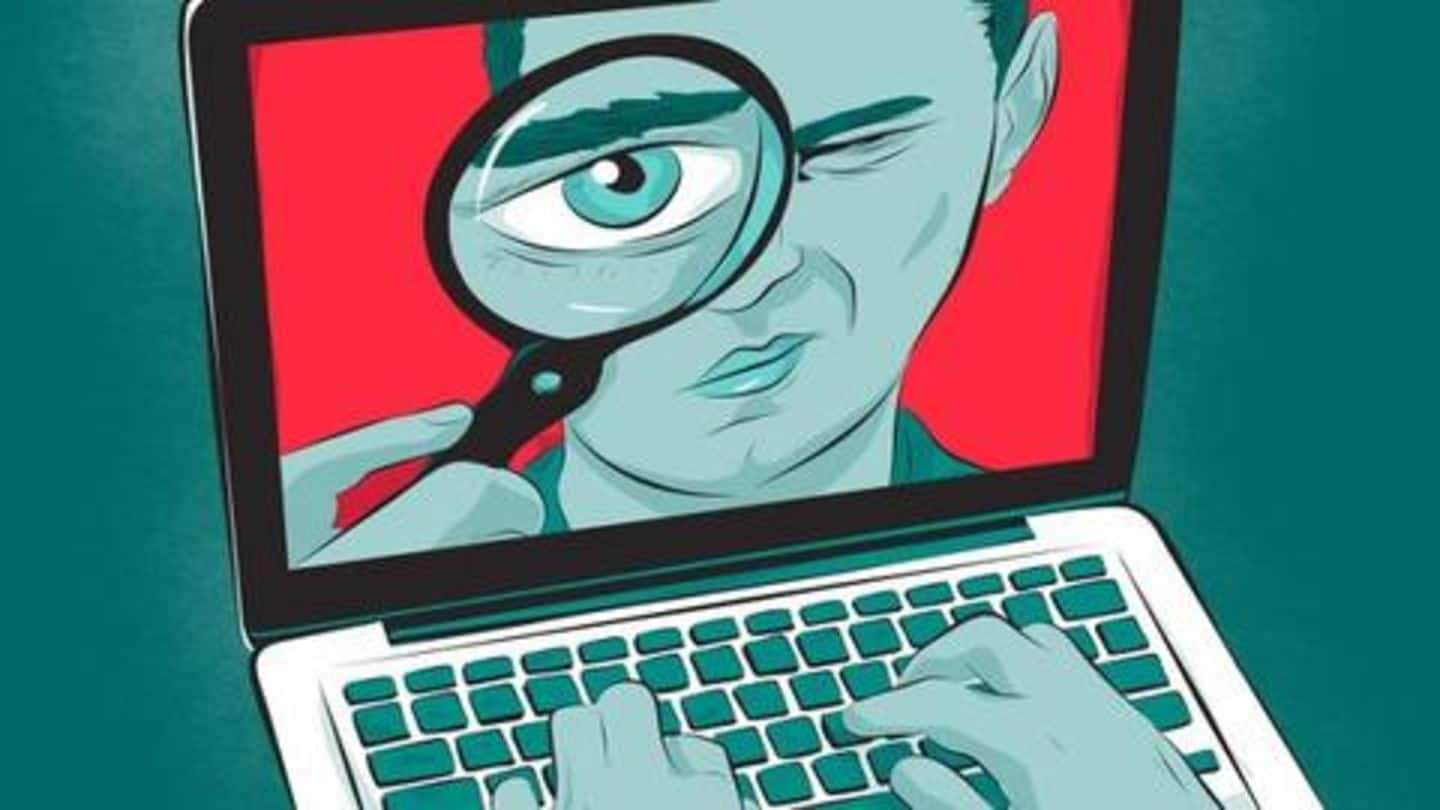
Now, government can monitor data in any personal computer
What's the story
In what could mark the beginnings of an Orwellian surveillance state, the Ministry of Home Affairs (MHA), on Thursday, granted sweeping powers to 10 Central investigative agencies to intercept, monitor and decrypt any data stored on computer devices. What's worse? People who refuse to cooperate when investigative agencies come knocking on the door could face seven years in prison. Here are the frightening details.
Details
Details of the MHA order
The order, signed by Home Secretary Rajiv Gauba, grants powers of "interception, monitoring and decryption of any information generated, transmitted, received or stored in any computer". The agencies empowered are the Intelligence Bureau, Narcotics Control Bureau, Enforcement Directorate, Central Board of Direct Taxes, Directorate of Revenue Intelligence, CBI, National Investigation Agency, Cabinet Secretariat (R&AW), Directorate of Signal Intelligence (in Jammu and Kashmir, North-East and Assam only), and the Delhi Police Commissioner.
Circumstances
Under what circumstances can the government snoop on you?
The aforementioned powers have been granted Section 69 (1) of the Information Technology Act, 2000. The Section essentially allows the Central government to initiate investigations in the "interest of the sovereignty or integrity of India, defense of India, security of the state, friendly relations with foreign states or public order or for preventing incitement to the commission of any cognizable offence relating to above or for investigation of any offence."
Implications
What the order essentially means
This essentially means that the 10 agencies named in the order have the complete authority to snoop on any data on any computer owned by individuals/entities under their scanners. Further, the individual/entity whom the computer belongs to is expected to cooperate with these agencies when an investigation is launched. In the event on non-cooperation, individuals could face up to seven years in prison.
Surveillance
All communication can now be monitored
Previously, government agencies could only intercept data in transit, not data stored on computers. Now they can monitor data at rest, and even seize devices. NDTV notes that the government had earlier granted agencies the power to tap phone calls and get into social media accounts after taking permission from the Home Secretary. Coupled with the new order, the government now has the power to virtually monitor all communication in India.
Misuse
The potential for misuse is massive
Total surveillance apart, what is particularly worrying is the potential for misuse. Given the fact that the circumstances mentioned under Section 69 (1) of the IT Act, 2000 are open to interpretation, such surveillance powers can effectively be deployed without checks and balances. For instance, dissenters can easily be labelled as a threat to the "security of the state", thereby allowing the Centre to suppress dissent.
Criticism
1984 to North Korea: Many have voiced objections
Understandably, the move by the MHA has received sharp criticism from netizens, social and political commentators, and the Opposition alike. Many have likened it to the dystopian world of surveillance painted by famed writer George Orwell in his timeless classic, 1984. Others, meanwhile, have likened it to tendencies of totalitarian states like North Korea to monitor all its citizens.
Twitter Post
Sitaram Yechury calls the order "unconstitutional"
Why is every Indian being treated like a criminal? This order by a govt wanting to snoop on every citizen is unconstitutional and in breach of the telephone tapping guidelines, the Privacy Judgement and the Aadhaar judgement. https://t.co/vJXs6aycP0
— Sitaram Yechury (@SitaramYechury) December 21, 2018
Twitter Post
Omar Abdullah calls it an imitation of North Korea
We have the North Korean news channels now we have the North Korean police state. Imitation, as they say, is the sincerest form of flattery. https://t.co/LIl3QV8yy5
— Omar Abdullah (@OmarAbdullah) December 21, 2018
To conclude
Remember, Big Brother could be watching
The new order also weighs heavily on what 'privacy' means for Indians. Last year, the Supreme Court had ruled that privacy was an inviolable fundamental right, and whether the move can be challenged in court on those grounds remains to be seen. In the meantime, every Indian will have to keep in mind that Big Brother could always be watching.